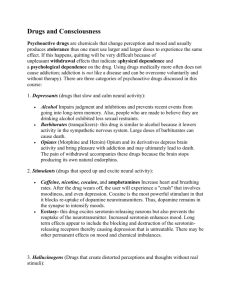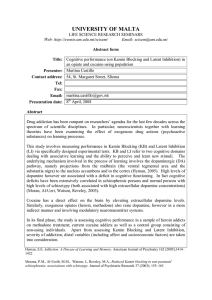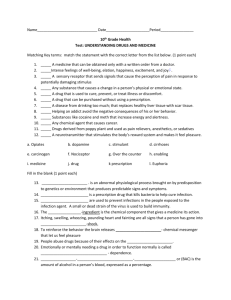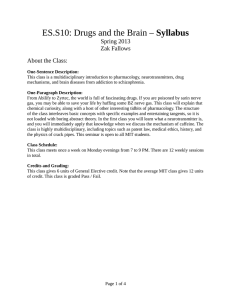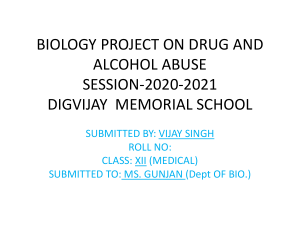UNIVERSITY OF MALTA
advertisement
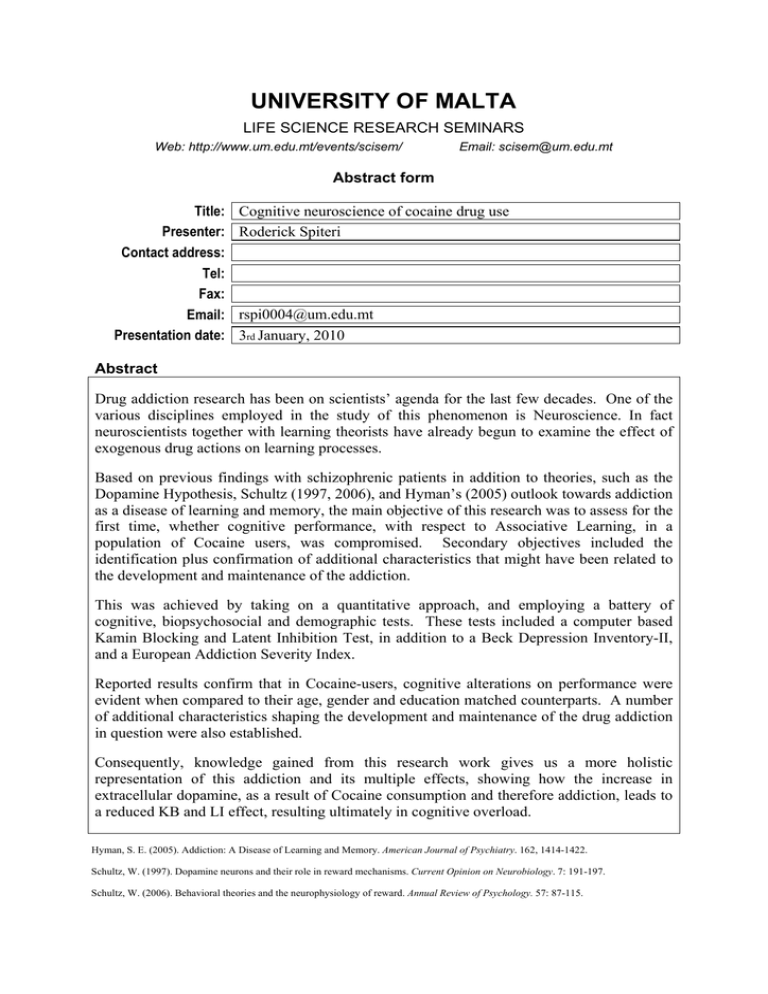
UNIVERSITY OF MALTA LIFE SCIENCE RESEARCH SEMINARS Web: http://www.um.edu.mt/events/scisem/ Email: scisem@um.edu.mt Abstract form Title: Presenter: Contact address: Tel: Fax: Email: Presentation date: Cognitive neuroscience of cocaine drug use Roderick Spiteri rspi0004@um.edu.mt 3rd January, 2010 Abstract Drug addiction research has been on scientists’ agenda for the last few decades. One of the various disciplines employed in the study of this phenomenon is Neuroscience. In fact neuroscientists together with learning theorists have already begun to examine the effect of exogenous drug actions on learning processes. Based on previous findings with schizophrenic patients in addition to theories, such as the Dopamine Hypothesis, Schultz (1997, 2006), and Hyman’s (2005) outlook towards addiction as a disease of learning and memory, the main objective of this research was to assess for the first time, whether cognitive performance, with respect to Associative Learning, in a population of Cocaine users, was compromised. Secondary objectives included the identification plus confirmation of additional characteristics that might have been related to the development and maintenance of the addiction. This was achieved by taking on a quantitative approach, and employing a battery of cognitive, biopsychosocial and demographic tests. These tests included a computer based Kamin Blocking and Latent Inhibition Test, in addition to a Beck Depression Inventory-II, and a European Addiction Severity Index. Reported results confirm that in Cocaine-users, cognitive alterations on performance were evident when compared to their age, gender and education matched counterparts. A number of additional characteristics shaping the development and maintenance of the drug addiction in question were also established. Consequently, knowledge gained from this research work gives us a more holistic representation of this addiction and its multiple effects, showing how the increase in extracellular dopamine, as a result of Cocaine consumption and therefore addiction, leads to a reduced KB and LI effect, resulting ultimately in cognitive overload. Hyman, S. E. (2005). Addiction: A Disease of Learning and Memory. American Journal of Psychiatry. 162, 1414-1422. Schultz, W. (1997). Dopamine neurons and their role in reward mechanisms. Current Opinion on Neurobiology. 7: 191-197. Schultz, W. (2006). Behavioral theories and the neurophysiology of reward. Annual Review of Psychology. 57: 87-115.

